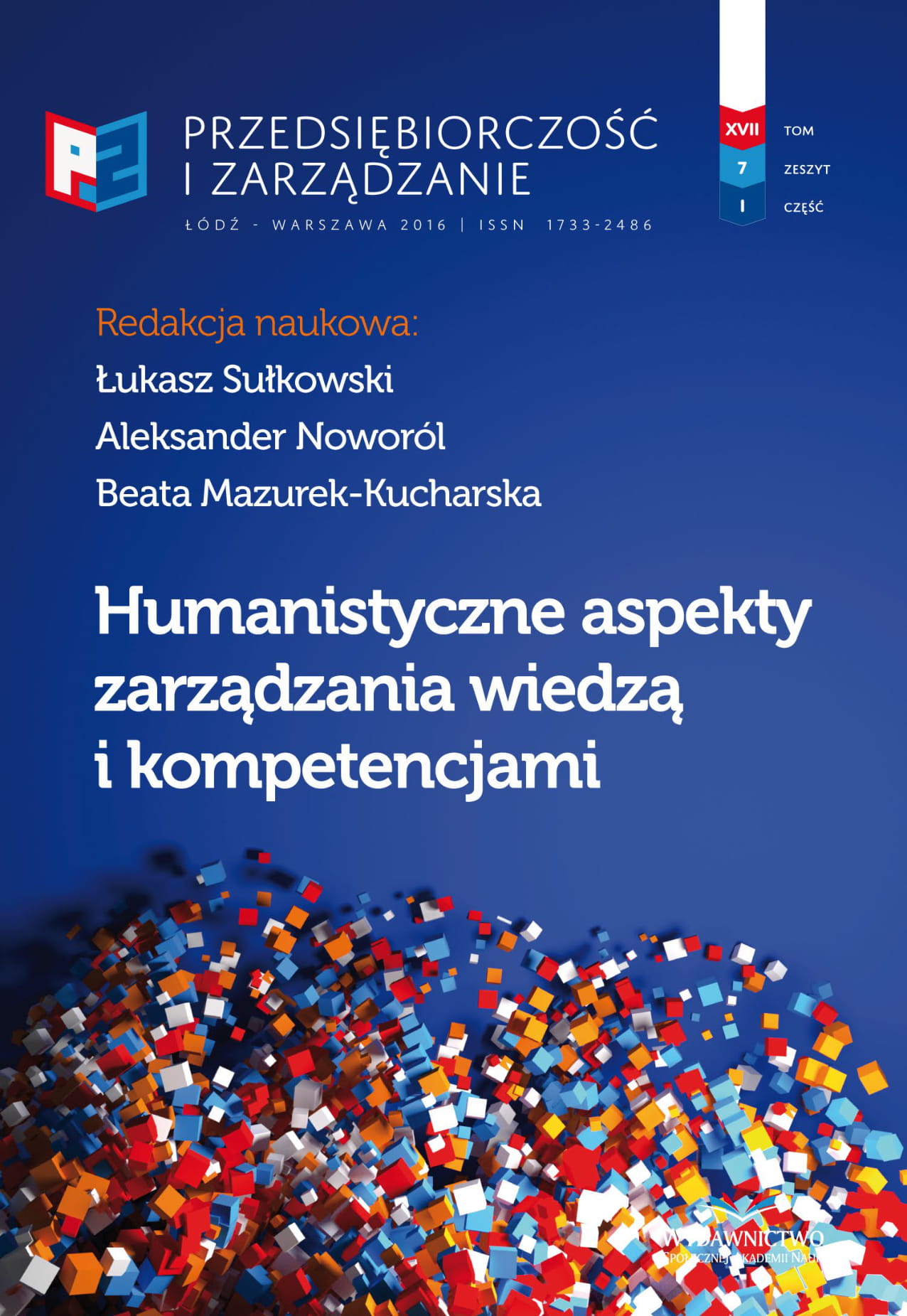Rola relacji interpersonalnych w budowaniu wartości kapitału ludzkiego w środowisku akademickim
The role of Interpersonal Relationships in Building the Value of Human Capital in Academia
Author(s): Beata Mazurek-KucharskaSubject(s): Business Economy / Management, Energy and Environmental Studies, Socio-Economic Research
Published by: Społeczna Akademia Nauk
Keywords: value of human capital; human capital in an academic environment; attitudes; interpersonal relationships; leadership; in-depth interview
Summary/Abstract: The article presents reflections on the importance of relationships in building the value and quality of human capital in an academic environment. The analysis of the factors responsible for the strengthening or weakening of human capital was based on 40 individual in-depth interviews (IDI) conducted by the author between 2010 and 2015, on researchers working in either public or private universities. The study was carried out during consulting and within the projects related to supporting the process of commercialization of knowledge as well as during the projects which aimed to offer advice to academic researchers who intended to set up their own businesses. The research findings allowed to indicate these dimensions of interpersonal relationships which, in the opinion of the respondents, improve the quality of human capital. These include; willingness to share knowledge, having a cooperative attitude, having a tolerant attitude, being well-mannered, being open to dialogue and the exchange of views, and the ability to avoid conflict. The study also analyses the factors which hinder personal contact or make it difficult and as a result, negatively affect the value of human capital in an academic environment. Such factors include; demonstrating rivalry towards colleagues, being secretive or having hidden motives, being manipulative, having a low level of cooperation between the older and younger generations of academic researchers, being jealous or envious of colleagues, the existence of exclusive social and professional connections leading to a sense of nepotism, a low culture of, or total lack of academic discussion and exchange of ideas, dehumanization of interpersonal contact in favor of overly-bureaucratic working environment, a lack of traditional pattern of leadership among supervisors and academic authorities.
Journal: Przedsiębiorczość i Zarządzanie
- Issue Year: 17/2016
- Issue No: 7.1
- Page Range: 91-107
- Page Count: 18
- Language: Polish

